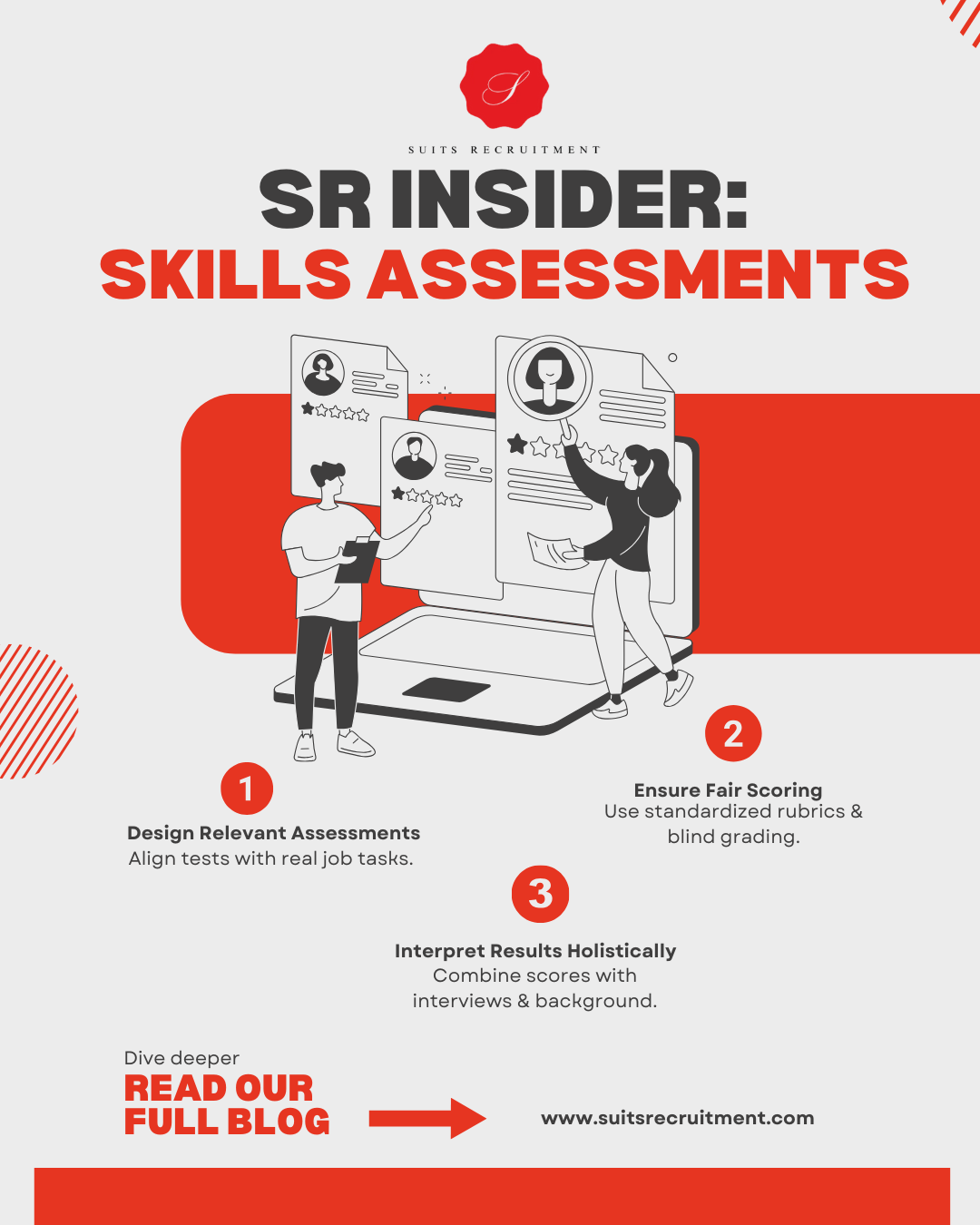









SR Insider: Leveraging Skills Assessments for Better Hires
Introduction
In today’s competitive hiring landscape, a well-crafted CV and a confident interview aren’t always enough to guarantee a great hire. That’s why more and more forward-thinking employers are turning to skills assessments—structured tests that measure a candidate’s ability to perform tasks directly related to the role. When designed and implemented correctly, skills assessments can drastically improve hiring accuracy, reduce turnover, and ensure you’re selecting candidates who can truly deliver.
At Suits Recruitment, we believe skills tests should be
fair, relevant, and interpreted holistically. Here’s how to make them work for you.

1. Design Relevant Assessments 🛠️
The most effective skills tests mirror the real-world tasks a candidate will face on the job.
- For a content writer, this could mean creating a short article on a given topic.
- For a customer service role, it could be responding to a simulated complaint email.
- For technical positions, it may involve coding challenges or troubleshooting scenarios.
Key Tip: Avoid generic or irrelevant tests—these risk alienating top candidates and waste time. Instead, align every question or task with the actual responsibilities of the position.
2. Ensure Fair Scoring ⚖️
A skills assessment is only as reliable as its scoring method. Bias—whether conscious or unconscious—can creep in if grading isn’t standardized.
- Use rubrics: Define clear, measurable criteria for scoring responses.
- Consider blind grading: Hide identifying information during evaluation to focus solely on performance.
- Train evaluators: Ensure consistency in scoring by training those who review the tests.
Why it matters: Fair scoring not only builds trust with candidates but also helps you remain compliant with hiring regulations.
3. Interpret Results Holistically 🔍
While scores are important, they are just one part of the bigger picture. A perfect test score doesn’t always mean a perfect hire—and a lower score doesn’t always mean the candidate won’t thrive.
Best practice: Combine assessment results with:
- Structured interview performance
- Background checks
- Cultural fit considerations
This well-rounded approach ensures you’re hiring the whole person, not just the test taker.
Conclusion
When thoughtfully designed, scored, and interpreted, skills assessments can be a game-changer for your recruitment strategy. They help you identify top talent faster, make objective hiring decisions, and set your new hires up for success.
📢
Want to learn more? Dive into the full hiring accuracy guide on our website.
#SRInsider #SkillsAssessment #HiringBestPractices #SuitsRecruitment
By: Joy Khaylin Ugokwe











